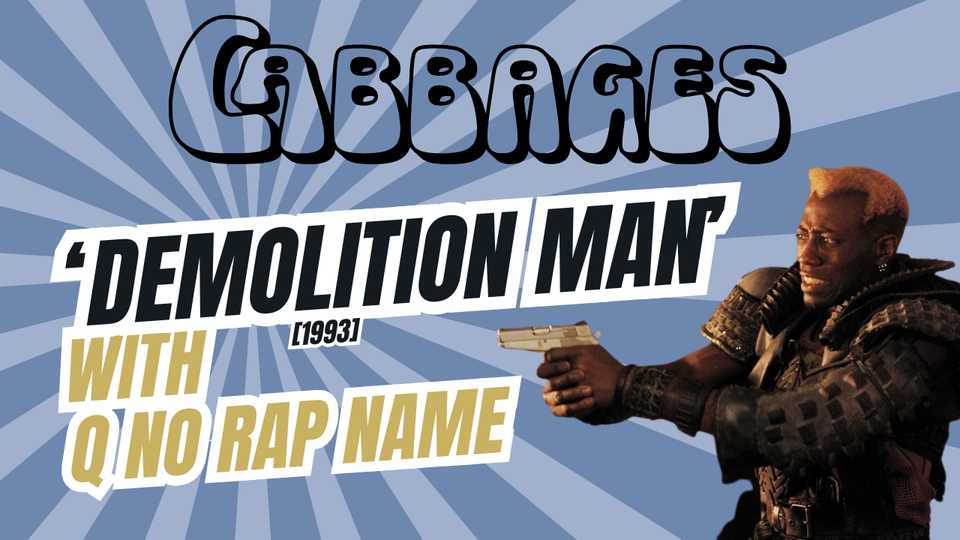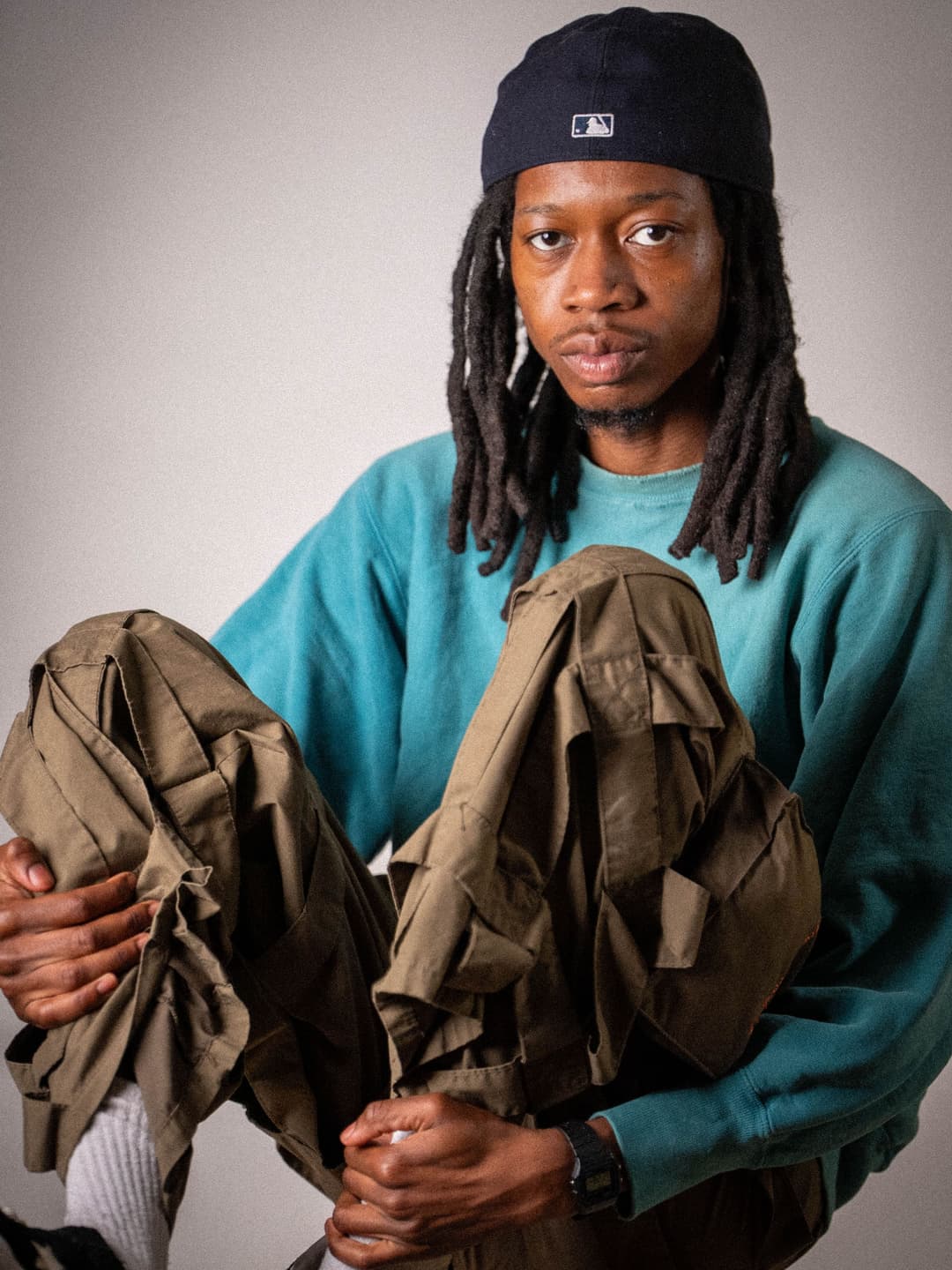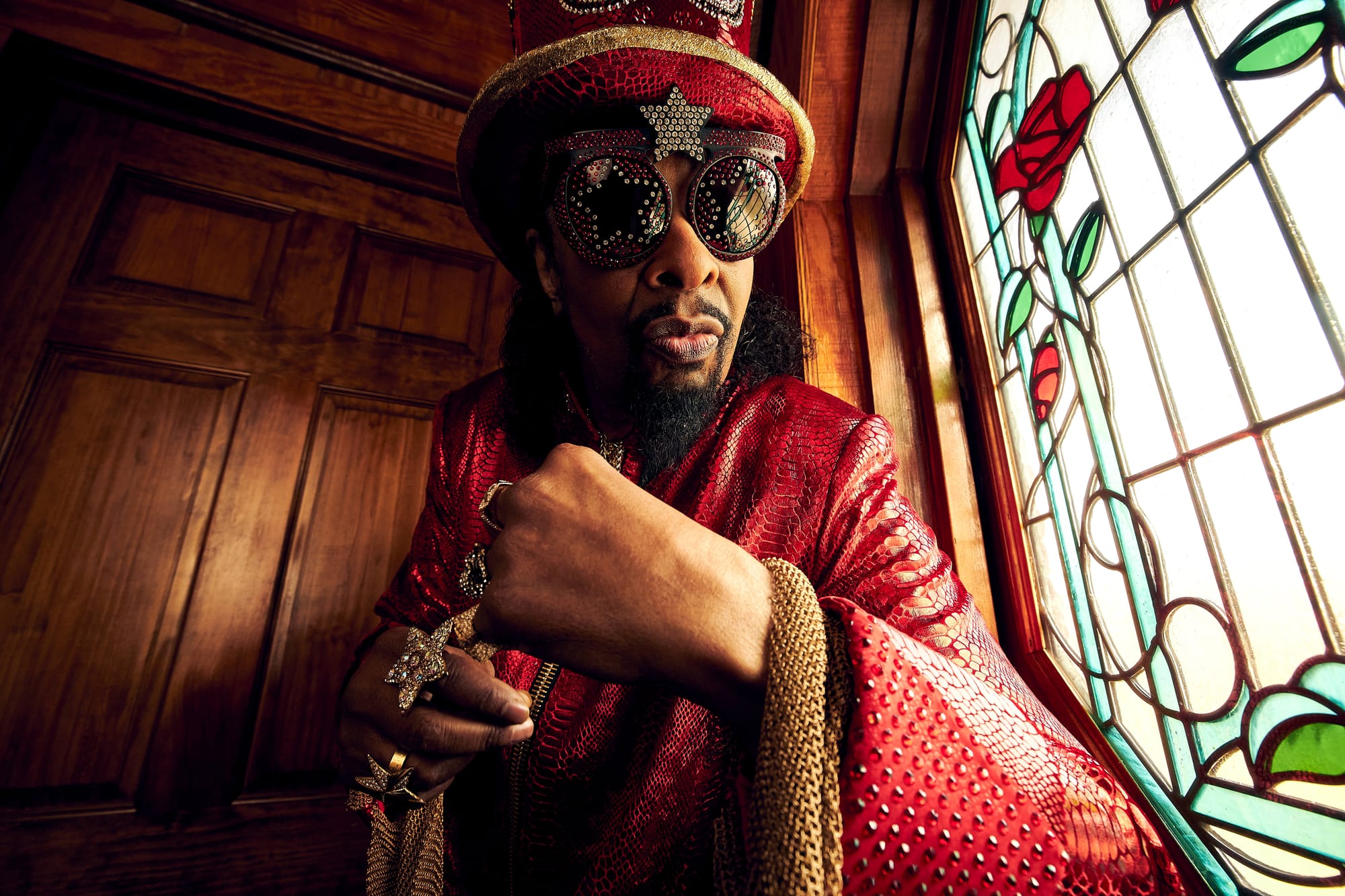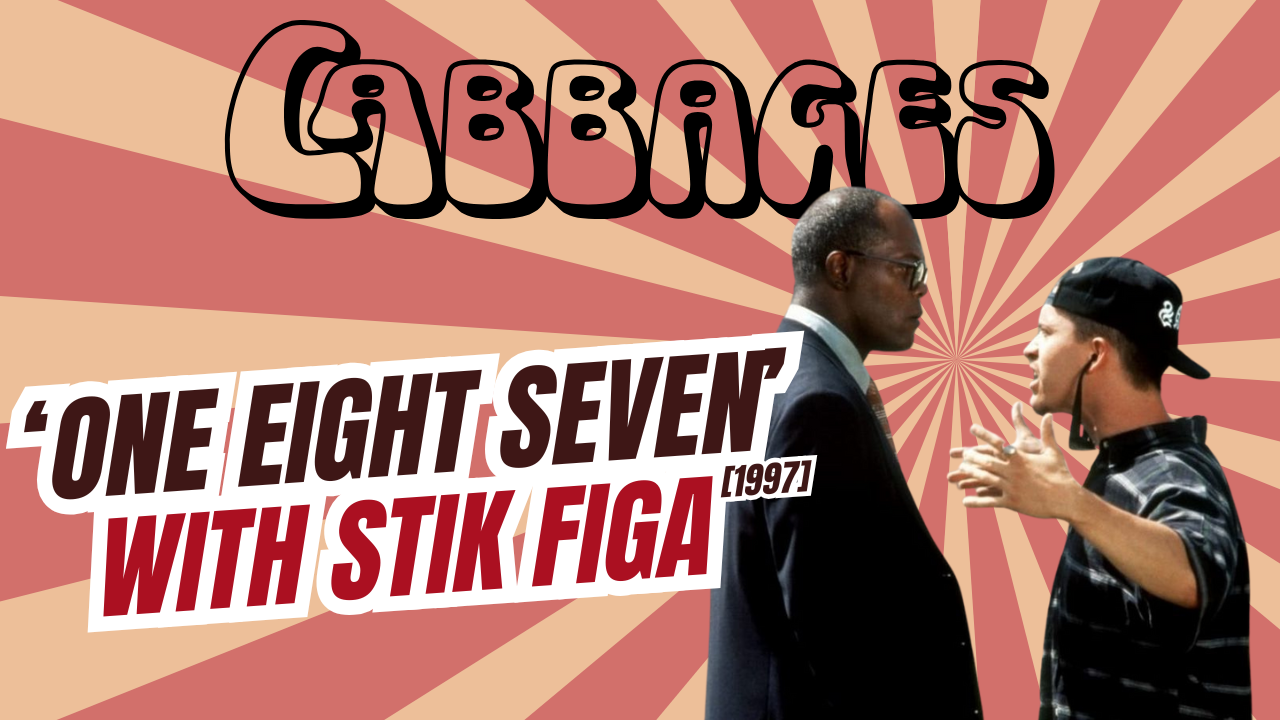Nice Guys Finish Last. Real Bad Man Has Only Just Begun.
The beatmaker on LPs with Zelooperz, Kool Keith, and Boldy James +reviews of AJ Suede and Black Milk & Fat Ray
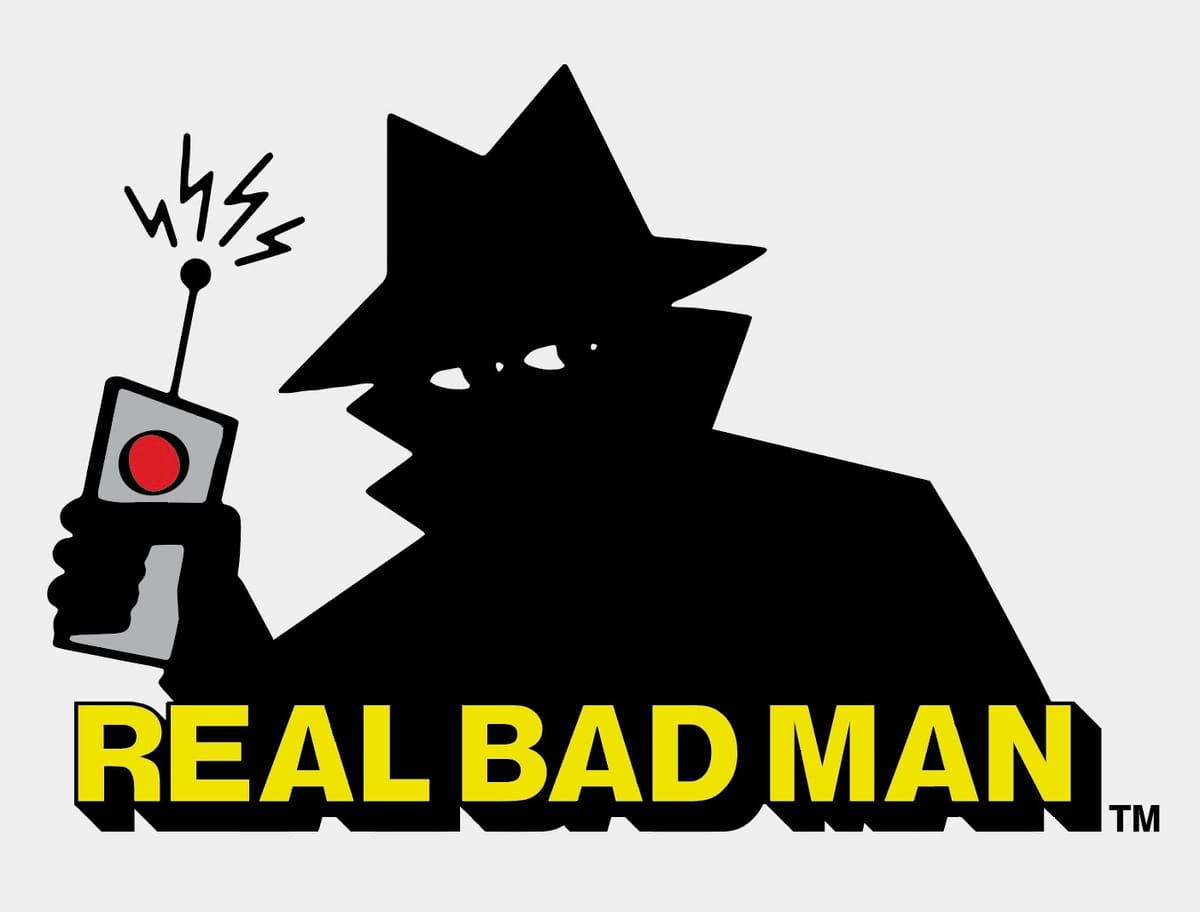

Somewhere in Los Angeles right now, Real Bad Man is likely working with one of your favorite rappers.
Judging by the enigmatic producer's existing track record, and your reading of this newsletter, that statement cannot be debunked. From albums with everyone from Boldy James to Pink Siifu to YUNGMORPHEUS, as well as his On High Alert compilation series featuring the likes of Crimeapple, Stove God Cooks, and Roc Marciano, his catalog reflects a who's who of contemporary independent hip-hop.
Though his two projects with the aforementioned James, 2020's Real Bad Boldy and 2022's Killing Nothing, put the artist born Adam Weissman on the radars of Griselda heads and underground rap enthusiasts of various stripes, his musical history goes back much further. In the 1990s, he worked for Eazy-E and N.W.A. manager Jerry Heller's Ruthless Records while still a high schooler, spending time around the label's then-signee Will.I.Am in pre-Black Eyed Peas form. Adopting the moniker Sample 208, his earliest beat placements came with Live Poets, a mid-'90s proto-Anticon project of Sole.
He later produced for Digital Underground associate Mystic's major label debut Cuts For Luck And Scars For Freedom, subsequently channeling that energy into the electronic band Pollyn, which included future Brainfeeder signee Genevieve Artadi. After that group disbanded, he found new focus as Real Bad Man as a multi-pronged endeavor, leveraging his professional experience as art director for brands like Stüssy and his education in filmmaking.
His latest full-length release, Dear Psilocybin, is in collaboration with ZelooperZ, the unorthodox yet versatile Detroit-based artist and member of Danny Brown's Bruiser Brigade. As might be expected given their respective discographies, the trippy and, at times, transcendent results diverge somewhat from previously held expectations of what each of them bring to the proverbial table.
"This is probably a little different than what you're used to hearing from him," Weissman says of the album with ZelooperZ, "in a good way."
CABBAGES: Can you speak on why Real Bad Man exists in both the fashion and music spaces?
Real Bad Man: To me, it's all kind of connected. Because the way I learned to design is the same way I learned how to make beats, which is through sampling, taking something that I think is cool and then making it my own. Especially with streetwear, which is where I really cut my teeth, a lot of it was born at the same time as modern rap. So they all go together for me, doing stuff within a DIY sense of manipulating, editing, taking something that you didn't necessarily create, and then creating something out of it.
With clothing and streetwear, where I started was, I love this old military jacket. I'm going to remake it, but I'm going to change the fabric, or I'm going to switch the collar, or I'm going to put a graphic on the arm. And then I have a film background. So the film is the storytelling and to figure out how to communicate your ideas to your crew, which is sort of the same thing as producing a record when you're working with an artist. In the film world, editing is probably the closest thing to making beats–at least the way that I make beats–which is a lot of editing, trying to take all these puzzle pieces and make them fit into something that looks correct. Then it's like this final piece, but no one knows there's a hundred cuts in this scene, but same thing making a beat. So to me, it all sort of feels the same.
At what point did your music play a role in Real Bad Man ?
I eventually got to the part of my career and my age where I could afford to make music in a way that I wanted to make music: to create albums that were albums I wanted to listen to with artists I wanted to work with. When Pollyn ended, I was like, I'm not going to do any more music. I'm just going to do design and creative work. That's what people want for me. But I couldn't just stop.
I started Real Bad Man as a clothing brand. The idea was, I'm going to do this clothing brand where I can do whatever I want. I don't have to listen to a creative director or a client. If I want to do a shirt with a graphic on it that only I'll understand, I'm going to do it. Then I was like, it'd be really cool to put out a little seven-inch with the collection. I did the first season and I got Edan to do something. Edan's one of my favorites and it was great. We did another thing on the flipside that was this digital reggae group from Tokyo. But I didn't produce any of it. It was like, I'm just going to curate it. Then season two came along and there's not that many people like Edan that can rap really well and are amazing producers. I was like, I'll just make the beats and then I'll find the rappers.
[For] season two, I did two of the three tracks on there. One of them was with Meyhem Lauren, and it was supposed to be a cover of "Psycho Dwarf" by The Beatnuts. I took the same drums that they used, but I changed the sample on top of it and kept the same tempo. It was just supposed to be a nod to it and Meyhem. It was only going to exist on this seven-inch, and it still does. Lojii from Philly did another song where I sampled a weird stoner record. It was a drug theme that season. The third season was comedy. I did a song that was Alchemist rapping, and he got Boldy James for the second rapper. It was when they were recording probably the Boldface EP and The Price Of Tea In China. The other side was Blu and Large Professor, and then Exile scratched on it. These records only exist on vinyl and we only made a hundred of them. Unless you were around then you probably didn't know it exists, but I kind of like that idea of having a relic.
Some producers have a very specific style, and it's like the artists they work with speak to that. But if you look at the breadth of the artists you've worked with, your stuff makes for a pretty diverse mix.
I try to, the best I can. I'm not a chameleon, but I try to take into account who the artist is before. A lot of the time, I just send them a bunch of beats like, here are 10 beats, pick two and throw the rest of the beats away. I like to work towards what they're gravitating towards a little more and try to round it out in a nice way. So I do think there's a through line in my stuff; it has a sound. One of my strengths is curation, editing where it's like, I like you over these types of beats because I feel like that would be good for this project.
The Boldy albums I've done, I think, sound a little different from the other albums he's done. That doesn't mean all of his fans have to like them, but I'm not making him sing or doing a disco record. I want to make something special and unique. I'm usually working with an artist once–except for Boldy. And even with Boldy, we're not going into the studio saying we're making this record. I've recorded a lot with him, and it gets to the point where I have probably have 25 songs now that haven't come out that we've recorded over the last couple years. And I have songs from the Real Bad Boldy era that never came out. I think they're good songs, but as the editor and the producer, you can't put everything.
The next Boldy record [Conversational Pieces] has 12 or 13 songs, and I keep cutting songs off of it. I keep going back and forth on the Boldy record, the next one, what it should be, but pretty much it's finished and he likes it. I'm just really just figuring out the track listing and all that stuff.
How did making Dear Psilocybin with ZelooperZ compare with your experiences working with Boldy James?
Well, we pretty much recorded all of it together. Me and Boldy record together, and then he'll go record on his own and we'll come back and redo it. But with ZelooperZ, their process is [that] each of them are very different. So Boldy will come to the studio and hear a beat and write for however long he needs. Then we go and we record. Whereas ZelooperZ would sometimes have some stuff written, but usually for this record, he was like, I don't like what I wrote. I'm just going to go sort of stream of conscious and put the song together that way. I am not used to working that way at all, but it was really exciting. If Boldy is writing for two hours on the couch, I have nothing to do. I run out of internet and I can't work on another beat because the beat has to play. With ZelooperZ, I had to be on to record everything. We'd listen to it back and then he'll be like, oh, let me redo that, or let's put a break here and this'll be a chorus. A lot of it was letting him get it all out and then seeing what we had and moving things around. It was like recording a band almost.
It was a different process than what I was used to, but equally rewarding when it's done. I listened to "Sweet Celine" on Spotify when it came out and it sounds different coming through Spotify through my speakers in my car than when I was playing the private SoundCloud link. I don't know what it, it's probably exactly the same. But the fact that it's up and I can't change it anymore, it takes on a different form. I liked hearing it in that way.
We did it here in my studio at home, most of it. There's another studio I work at, and then one song he did on his own back in Detroit, but everything else was recorded here. I was also growing magic mushrooms in the studio, not a lot, which I'm pretty sure is how he came up with title because they were right next to him when he was recording. It was a relatively smooth recording session. He'd come over here and we'd record for a handful of hours, do a couple songs each time, and then listen to them back. We did a lot of extra songs that either never got finished or just weren't as strong as the ones that we picked. I know it's not as aggressive as some of his records [or] as energetic as some of his other stuff, but I don't make that energetic type of song.
As a Kool Keith fan, I'd be remiss if I didn't ask about Serpent, your 2023 album with him. What was that experience like?
I had done a few things with Kool Keith before that. On High Alert, on volume three, one of them was called "Clockin' Fat Knots." I try to make records that hopefully gets my name out to more people in the world of music. His fans are his fans, but he puts out a lot of albums. But eventually I talked myself into doing it and I was like, all right, let's do a Kool Keith record. I sent a bunch of beats and then he'd go into the studio to record and then send it to me. The verses were good, and I'd sort of move stuff around and try to find how can I make it feel like a chorus. I'd make notes and I'd send it back and have him redo vocal things again, just try to get it to how I heard it in my head. and then would send more beats. We went back and forth and then something clicked, I don't know, halfway through.
This isn't a diss, but the way you make a Kool Keith record a good one is to put a lot of fucking effort into making the record good as a producer. He gives you a lot of stuff and, upon first listen, you'd be like, oh, this is cool. But it's almost like you have to study it, take it apart, and put it back together to get something amazing out of it. I did that with a bunch of the songs where he gave it to me and I was like, he didn't listen to my notes. Then I would listen to it over and over again, and then I'd be like, no, he did. He just interpreted it his way. And that's some of his genius is that he does it his way, no matter how you ask him to do it. It took me a while to kind of figure that out. I spent a lot of time working with the songs to make them into songs as opposed to streams of consciousness raps. I had to do work as a producer to really craft the album into something I wanted. It was a big undertaking, but by the end, this is one of the best Kool Keith records that I've heard that I would want to listen to as a fan.
I don't think there'll be another Kool Keith record, but I'm really happy with Serpent. It's one of the more fun records that I listened to when we were recording, when it was mixed and wasn't out. I would go to sleep stoned with headphones on and listen to it. It was fun. It's sequenced well. There was shit going on.

Black Milk & Fat Ray, Food From The Gods
A pair of Detroit hip-hop fixtures with over two decades in the game, respectively, Black Milk and Fat Ray go back at least that far. Their collaborations include 2008’s joint album The Set Up and prior production work in the B.R. Gunna unit crafting beats for Phat Kat and Slum Village, among other local notables. Over the years, both artists have gone down somewhat divergent paths, yet they come together again in sweet harmony with Food From The Gods. Ray seizes the mic early on, his formidably gruff delivery and Bruiser Brigade bonafides intact over Milk's haunting "ELDERBERRY" beat. Nods to Dilla abound, their firsthand connection to the late pioneer made palpable to the rest of us on “Talcum" and the mind elevating "EL HONGO (The Mushroom)." Soon enough their pals come around, with Guilty Simpson dismantling hack rappers without remorse on "CANE" and a relatively subdued Danny Brown recounting family drama on the jazz abstraction "Just Say No." Bruiser Wolf arrives in characteristically charming fashion for "Franky Lymon," filling the back half with double entendres galore.
AJ Suede, The Duke Of Downtempo
A shimmering indie rap star overdue for his supernova, Seattle-based rapper AJ Suede can't keep dropping projects like this and expect to stay deep underground for much longer. Self-produced and self-released with knowledge of self, The Duke Of Downtempo prides itself on pitched-down beats and calculated wordplay. Songs start and end abruptly, his organic one-take excellence on evanescent display for "Ancient Mew" and the boom bap redux "Poker Chips." (You can, of course, replay any and all of them.) If not for his densely packed lyricism, an intricately tangled nest of referential threads, one might assume "Pruitt Eye Go" and "Weeping Willows" were off-the-dome freestyles judging by the casual way he spits over them. One moment that doesn't ever sound informal is "Blind Driver," a stunning ShrapKnel collab that makes the case for launching a proper trio album with Curly Castro and PremRock, especially if it involves more of Suede's methodically purp-slow beats.


Three new tracks to snack on...
Duncecap & Steel Tipped Dove, "We Never Really Lived It"
Daniel Son & Ghostnotes, "One Ways"
lilith, "how to crowdfund a date (feat. Aman!!!, Ras & guuumaqu)"


